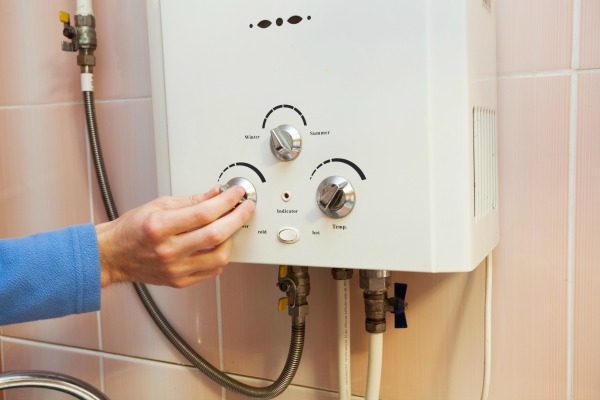When deciding whether or not to purchase a new water heater, it is essential to consider the type of power source. A natural gas water heater is safe and effective, and some models also use electricity to light the pilot light. In contrast, electric water heating systems use a piezoelectric starter to ignite the natural fuel. Regardless of which type you choose, you’ll have plenty of hot running or warm water in a short amount of time.

A gas water heater can either be electric or gas-powered, and the operation of each is different. While a gas tankless unit does not require electricity, it does require a battery backup system. For this reason, it is important to consult with a plumber to determine which type will be best for your needs. Even if you don’t use an electric water heater, you can install a tankless gas model. However, it’s recommended that you check the instructions carefully before installing your unit.
Another consideration is whether you can power your new water heater with electricity or without. Both types of water heaters use natural gas as their primary fuel. However, some models use electricity to ignite a pilot light using a piezoelectric starter. This means that even if there’s a power outage, a gas water heater can still work even without mains electricity. Moreover, some models don’t even use electricity.
A gas water heater uses electricity to heat the water that is stored in its storage tank. This method is often cheaper than electricity. A gas water heater can be installed outside, but it is still important to consult a plumber before installing the unit. If the gas supply doesn’t work, you can always install a battery backup system. A battery backup can help in emergencies. If you’re looking to make the transition to gas, check with your local building codes first to ensure that you’ll get the correct installation and maintenance.
A gas water heater will not work without electricity. It will be unusable if there’s no gas supply. During power outages, it may be wise to use an electric water heater. Alternatively, an electric one can be placed in the same room as a natural gas one. In both cases, the electric water heater will run continuously as long as the pilot light is lit. The cost of operating an electric water heater should be weighed against the amount of energy it will use.
A gas water heater is a better option if it’s possible to connect the gas supply to the unit. Unlike an electric unit, it does not need electricity. It can be installed inside a home or building, enabling you to save money on operating costs while using it. You should also take into consideration the cost of upgrading the existing electric water heater. If there’s a shortage of electricity, you can still install a new electric model.
A gas water heater is slightly more expensive than its electric counterpart. For example, a 40-gallon gas water heater costs $999, whereas an electric model costs $950. A gas water heater is cheaper, but it uses more electricity than an electric one. Nevertheless, if you don’t want to worry about power cuts or outages, an electric water heater is a better option. It’s recommended to purchase a gas water heater if you live in an area where there is a shortage of electricity.
Electric and gas water heaters are similar in their usage. The primary difference is the cost of installation and operation. A gas-powered water heater requires a power source for its pilot light, while an electric one does not need one. The difference between the two types of water heaters is the cost of the pilot light, and therefore the energy savings. The electric water heater costs more than a gas-powered one.
A gas water heater requires a regular maintenance schedule. When the water heater is working properly, a gas water heater will cost less than an electric one. The electrical power supply is needed for the thermostat, which is located on the back of the valve. This thermostat causes the electric current to increase and decrease based on the temperature of the water. A change in electrical current means that the gas control turns on and off.

